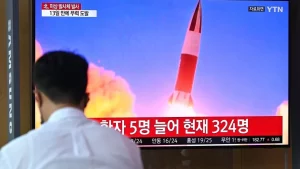On October 1st, the Kanjuruhan stadium located in East Java in Indonesia was set to host a match between Arema and Persebaya Surabaya. Although the stadium’s capacity was set at 38000 people, it was filled past that limit, with 42000 tickets being sold. None of those fans who showed up for what was supposed to be an exciting match could have known that some of them would not be returning home.
A massive pitch invasion after the match set the tragedy in motion – labelled “one of the world’s worst ever sports stadium disasters”. The number of fans that invaded the pitch is estimated to be around 3000; the death toll has been announced to be 125, with 320 people experiencing injuries. Statistically, this was the third worst stadium disaster of all time; behind the Accra Sport Stadium disaster in Ghana in 2001, and the Estadio Nacional disaster in Peru in 1964, which had death tolls of 126 and 328 respectively.
Persebaya Surabaya had emerged as the victorious side, defeating the home team with a score of 3-2. After the match, fans of both teams overran the pitch, and conflict erupted soon after. It is common to see fans fight, or cause general mayhem in or around the stadium In derby matches. However, the response of the present police officers made this situation different to others, and eventually led to its aftermath.
Two police officers were killed among the chaos. Subsequently, other police officers fired tear gas at the fans on the pitch, with the intention to disperse the mob. Instead, the gas caused a human stampede as fans tried to reach the stadium’s exits. 34 people were killed on the pitch, either being trampled or suffocated. The club doctors were called to help with injuries, but were of little use. 4 people died as a result of not reaching a doctor on time, with some fans even losing their lives in the arms of the players.
This controversial incident has raised many questions. Firstly, it will be investigated why 4000 tickets more than the capacity of the stadium had been sold. The most obvious question, however, is regarding the use of tear gas as a method of crowd control. The Indonesian government stated it will conduct an investigation on this topic, joined by its human rights commission and by the Football Association of Indonesia, who have been sent by FIFA.
All victims of the incident have been properly and respectfully acknowledged. Candles have been lit in a vigil at a lion statue, the club’s symbol; and flowers placed outside the gates of the stadium. Additionally, clubs worldwide have shown their respect by issuing formal announcements of condolences to all the families affected by the tragedy, and holding minutes of silence before matches.
Even after this tragedy, doubt remains regarding the safety of matches being played in Indonesia. Arema have been banned from hosting home games for the rest of the season, and all the security at its stadium is under investigation. Indonesia is set to host the FIFA Under-20 World Cup in May and June of 2023. In order for the country to maintain this position, stadiums will need to guarantee absolute safety, both to the players on the pitch, and to the fans cheering them on from their seats.






